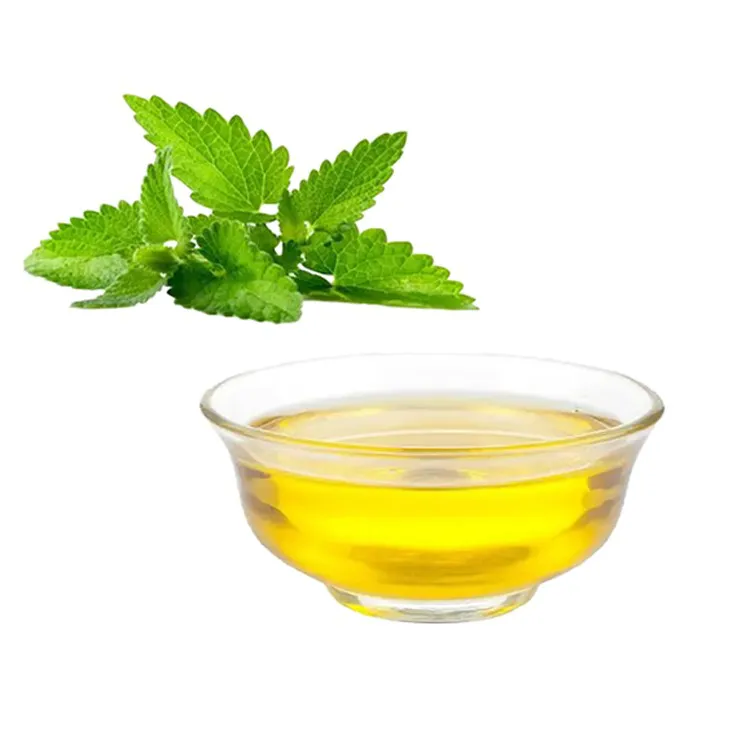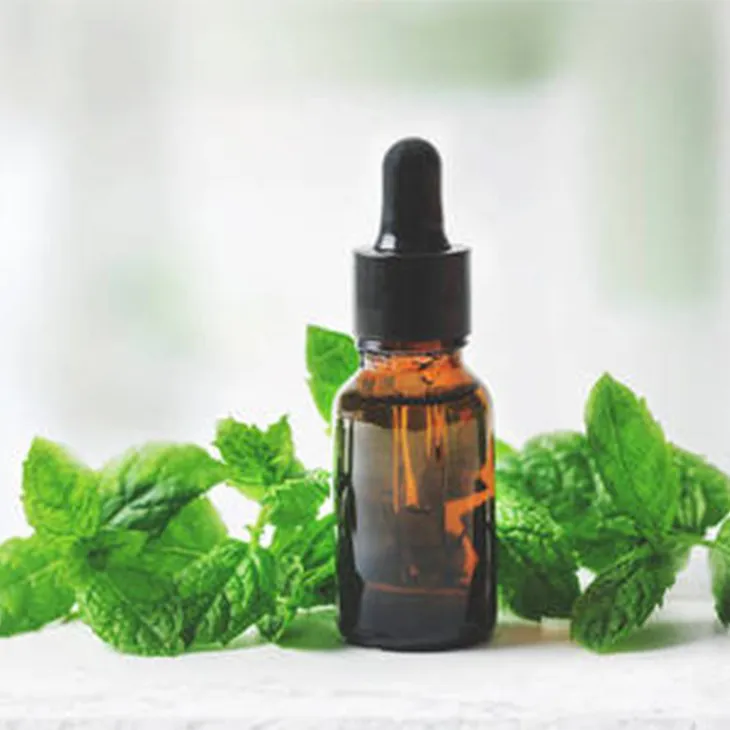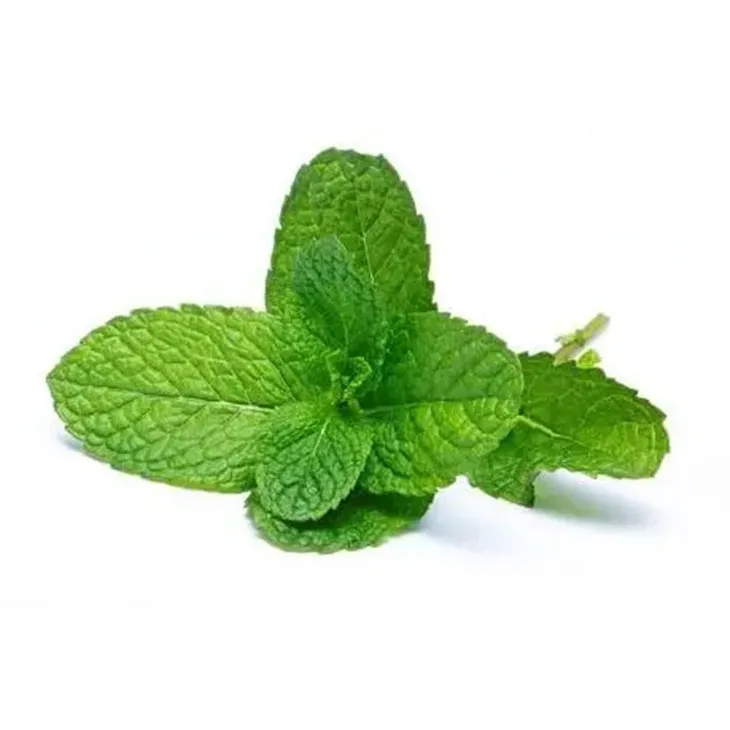- 0086-571-85302990
- sales@greenskybio.com
Peppermint Oil: Benefits, Uses and Possible Side Effects
2024-11-11

1. Introduction
Peppermint Oil is an essential oil that has been used for centuries due to its numerous properties. Derived from the peppermint plant (Mentha × piperita), it contains a variety of active compounds such as menthol, which contribute to its characteristic smell and many of its effects. This natural product has found its way into various aspects of our lives, from personal care to culinary uses and even in some medical applications. However, like any substance, it is important to understand both its benefits and potential side effects.

2. Benefits of Peppermint Oil
2.1. Refreshing Properties
One of the most well - known benefits of Peppermint Oil is its refreshing quality. The strong, minty aroma has a cooling effect on the body and mind. When inhaled, it can help to clear the sinuses, providing relief from stuffiness. It is often used in aromatherapy to create a sense of alertness and energy. For example, in a stuffy office environment or during a long study session, a few drops of peppermint oil in a diffuser can make the air feel fresher and help improve concentration.
2.2. Digestive Aid
Peppermint oil has long been recognized for its ability to aid digestion. It can help to relax the muscles of the gastrointestinal tract. This is especially beneficial for those who suffer from indigestion, bloating, or abdominal cramps. Menthol, one of the main components of peppermint oil, stimulates the flow of bile, which is important for the breakdown and absorption of fats. It can also help to soothe the lining of the stomach, reducing irritation. Many over - the - counter digestive aids contain peppermint oil as an active ingredient.
2.3. Pain Relief
The cooling and numbing effect of peppermint oil can provide relief from certain types of pain. When applied topically to the skin, it can help to relieve muscle pain, joint pain, and headaches. The menthol in the oil activates cold - sensitive receptors in the skin, creating a cooling sensation that distracts from the pain. It is often used in balms and creams for muscle aches. For example, after a strenuous workout, applying a peppermint - oil - based muscle rub can help ease the soreness.
2.4. Anti - Inflammatory Properties
Research has shown that peppermint oil has anti - inflammatory properties. It can help to reduce inflammation in the body, which is associated with many chronic diseases. Inflammation can occur in various parts of the body, such as the joints in arthritis or the digestive tract in inflammatory bowel diseases. By reducing inflammation, peppermint oil may help to alleviate symptoms and improve overall health. However, more research is needed to fully understand its role in treating inflammatory conditions.
2.5. Antimicrobial Effects
Peppermint oil has been found to have antimicrobial properties. It can inhibit the growth of certain bacteria, fungi, and viruses. This makes it useful in natural cleaning products and as a preservative in some food and cosmetic applications. In the mouth, it can help to fight against bad breath - causing bacteria, contributing to fresher breath. It may also be beneficial in preventing infections when used topically on minor cuts or wounds.

3. Uses of Peppermint Oil
3.1. In Cosmetics
Peppermint oil is a popular ingredient in cosmetics. Its refreshing scent makes it a great addition to lotions, creams, and lip balms. In skin care products, it can provide a cooling sensation, which is especially pleasant in hot weather or after sun exposure. It is also believed to have astringent properties, which can help to tighten pores. Additionally, in hair care products, it can be used to promote a healthy scalp by reducing itchiness and dandruff.
- Lotions: Peppermint - scented lotions are often used for their refreshing feel on the skin.
- Lip balms: The minty flavor and cooling effect make it a desirable ingredient in lip balms.
- Hair products: It can be added to shampoos and conditioners to soothe the scalp.
3.2. In Food
Peppermint oil is widely used in the food industry. It is a common flavoring agent in candies, chewing gums, and beverages. The minty flavor adds a refreshing taste that is enjoyed by many. In baking, it can be used to flavor cakes, cookies, and other desserts. However, it should be used in moderation as it has a strong flavor. In some traditional cuisines, peppermint is also used in savory dishes, such as in some Middle Eastern and North African recipes.
- Candies: Peppermint - flavored candies are a classic treat.
- Beverages: It is used in mint - flavored teas, sodas, and cocktails.
- Baking: Adds a unique flavor to baked goods.
3.3. In Medicine
As mentioned earlier, peppermint oil has various medicinal uses. In addition to its digestive and pain - relieving properties, it can also be used to relieve symptoms of respiratory conditions such as coughs and colds. When inhaled, it can help to clear mucus from the airways. It is sometimes used in the form of capsules or tablets for internal use, or as an ingredient in topical ointments for external application. However, it is important to consult a healthcare professional before using peppermint oil for medicinal purposes, especially if you are pregnant, breastfeeding, or have certain medical conditions.
- Respiratory relief: Helps clear airways in coughs and colds.
- Internal use: Available in capsules or tablets for digestive and other issues.
- External use: In ointments for muscle and joint pain.

4. Possible Side Effects of Peppermint Oil
4.1. Skin Irritation
When applied topically, peppermint oil can cause skin irritation in some individuals. This is especially likely if it is used undiluted. The strong nature of the oil can cause redness, itching, or a burning sensation on the skin. To avoid this, it should always be diluted with a carrier oil such as coconut oil or almond oil before topical application. If skin irritation occurs, it is important to stop using the oil immediately and wash the affected area with mild soap and water.
4.2. Allergic Reactions
Some people may be allergic to peppermint oil. Allergic reactions can range from mild symptoms such as a rash or hives to more severe reactions like difficulty breathing or swelling of the face, lips, or tongue. If you have a known allergy to mint or other plants in the Lamiaceae family, it is best to avoid using peppermint oil. If you experience any signs of an allergic reaction after using peppermint oil, seek medical attention immediately.
4.3. Gastrointestinal Disturbances
While peppermint oil is generally beneficial for digestion, in some cases it can cause gastrointestinal disturbances. Excessive use or ingestion of large amounts of peppermint oil can lead to heartburn, nausea, or vomiting. It is important to follow the recommended dosage when using peppermint oil for digestive purposes. If you experience any of these symptoms after using peppermint oil, reduce the dosage or stop using it and consult a healthcare provider.
4.4. Interaction with Medications
Peppermint oil may interact with certain medications. For example, it can interfere with the absorption of some drugs in the digestive tract. If you are taking medications, especially those that are affected by changes in the digestive system, it is crucial to consult your doctor before using peppermint oil. This is to ensure that there are no adverse interactions that could affect the effectiveness of your medications or pose a risk to your health.

5. Conclusion
Peppermint oil is a versatile natural product with a wide range of benefits and uses. It offers refreshing properties, aids in digestion, provides pain relief, has anti - inflammatory and antimicrobial effects, and is used in cosmetics, food, and medicine. However, it is not without potential side effects. Skin irritation, allergic reactions, gastrointestinal disturbances, and interactions with medications are all possible. To safely enjoy the benefits of peppermint oil, it is important to use it properly, following the recommended guidelines, and be aware of any potential risks. Whether you are using it for its pleasant scent, its health - promoting properties, or its various practical applications, understanding peppermint oil fully will help you make the most of this remarkable natural product.
FAQ:
What are the main benefits of peppermint oil?
Peppermint oil has several main benefits. It has refreshing properties that can help to invigorate the senses. It also has potential health benefits such as aiding digestion by relaxing the muscles of the digestive tract. Additionally, it can be used in cosmetics for its pleasant scent and potential skin - soothing properties.
How is peppermint oil used in the food industry?
In the food industry, peppermint oil is often used as a flavoring agent. It can add a minty flavor to various products such as candies, gums, and some beverages. It is also used in certain baked goods to give a unique and refreshing taste.
What are the applications of peppermint oil in medicine?
In medicine, peppermint oil has multiple applications. It can be used to relieve symptoms of indigestion, including bloating and gas. It may also have a mild analgesic effect and can be used topically to soothe minor aches and pains. Some studies have also explored its potential in relieving symptoms of certain respiratory conditions.
What are the possible side effects of peppermint oil?
Some possible side effects of peppermint oil include skin irritation when applied topically, especially in those with sensitive skin. When taken orally in large amounts, it can cause heartburn, nausea, and vomiting. In some cases, it may also interact with certain medications, so it is important to consult a healthcare provider before using it if you are on other drugs.
How can peppermint oil be used in cosmetics?
Peppermint oil can be used in cosmetics in several ways. It can be added to lotions, creams, and lip balms for its pleasant minty scent. Its potential antibacterial and soothing properties may also make it beneficial for skin care products, helping to soothe irritated skin and keep it feeling fresh.
Related literature
- Peppermint Oil: A Review of Its Chemical Composition, Biological Activities, and Therapeutic Applications"
- "The Benefits and Risks of Peppermint Oil in Digestive Health"
- "Peppermint Oil in Cosmetics: Properties and Applications"
- ▶ Hesperidin
- ▶ citrus bioflavonoids
- ▶ plant extract
- ▶ lycopene
- ▶ Diosmin
- ▶ Grape seed extract
- ▶ Sea buckthorn Juice Powder
- ▶ Beetroot powder
- ▶ Hops Extract
- ▶ Artichoke Extract
- ▶ Reishi mushroom extract
- ▶ Astaxanthin
- ▶ Green Tea Extract
- ▶ Curcumin Extract
- ▶ Horse Chestnut Extract
- ▶ Other Problems
- ▶ Boswellia Serrata Extract
- ▶ Resveratrol Extract
- ▶ Marigold Extract
- ▶ Grape Leaf Extract
- ▶ blog3
-
Cranberry Plants and Skin - care Products.
2024-11-11
-
Hesperidin
2024-11-11
-
Grape Leaf Extract
2024-11-11
-
Cat Claw Extract
2024-11-11
-
Dan Shen Root Extract/Salvia Root Extract
2024-11-11
-
Green coffee bean Extract
2024-11-11
-
Aguaje Extract
2024-11-11
-
Buckthorn bark extract
2024-11-11
-
Artichoke Extract
2024-11-11
-
Withania Somnifera Extract
2024-11-11
-
Shikone Extract
2024-11-11





















